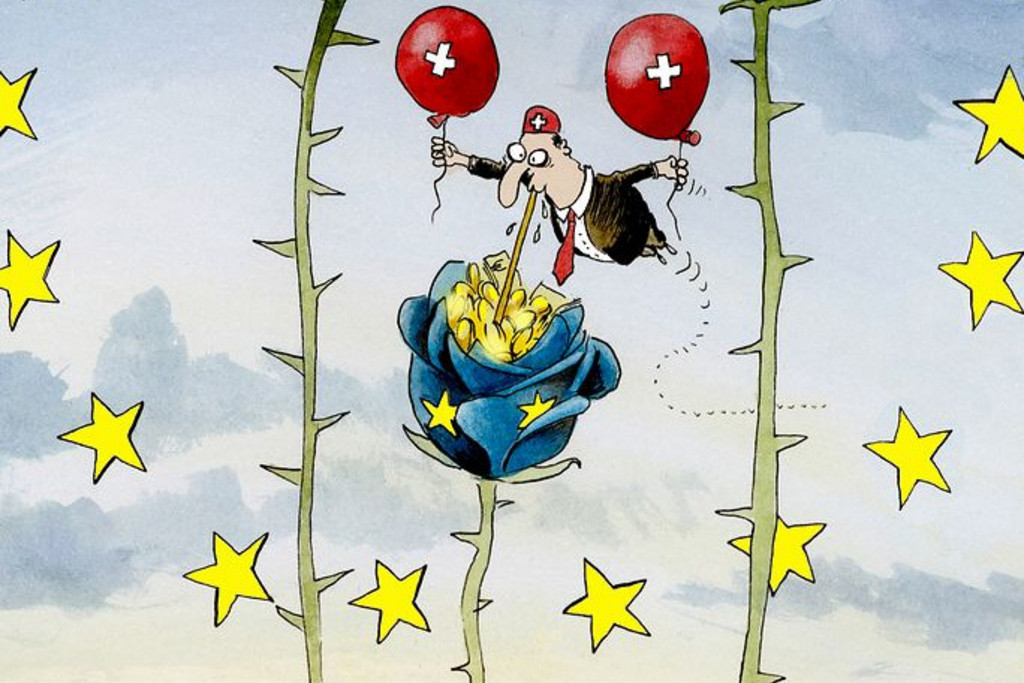
1856: Bank for the railways

1934: Banking secrecy enshrined in law

1977: Ski hats for the people

1991: Collapse of a regional bank

1997: Merger to create UBS

2008: State bailout of UBS

2010: Excessive bonuses at CS

2011: Too-big-to-fail law

2021: CS loses billions

March 2023: Emergency takeover by UBS

April 2023: Initial snub in parliament














![[Translate to English:]](/fileadmin/_processed_/3/7/csm_max-spring-3-cartoons-de_3c29839370.png)

Comments
Comments :
Habe die Schweiz verlassen, da nach dem Tod unseres Sohnes im 2020, 3 Tagen nach der Meldung die erste Zahlung vom Militärpflichtersatz gefordert wurde. Null Respekt vor Trauer, nur das Geld ist wichtig. Bin 2022 mit meiner Frau, Doppelbürgerin Schweiz/Portugal, nach Lagos, Portugal ausgewandert. Was in der Schweiz mit den Banken passiert, interessiert mich nicht mehr. Habe alles hier in Portugal, Eigentumswohnung, 3.Säule und PK auszahlen lassen. Was ich an diesen hochgelobten Bankinstituten kritisiere, ist, dass man als Auslandschweizer wie ein Bürger 3. Klasse behandelt wird. Darum kein Geld mehr in der Schweiz.
I have to express my feelings. I never saw that hat before I received the Swiss Review today.
My first impression was of horror. All I could see was a swastika!!
I know it’s not one. But it has such a resemblance. I think whoever designed this hat and all those who love it so much should be ashamed. Either they are secret Nazi lovers or not very bright.
I am sorry if I offended anyone. It’s not my purpose.
But in our times of global mounting racisms, pro Nazi groups and whites supremacist, I think this hat should be retired not on the front page of the Swiss Review.
Unwiderruflich die Tiefsinnigkeit dieser Skimuetze: schliesslich faehrt man Ski ja nur bergab...
La CHUTE c'est la fin du secret bancaire accepté sous la menace des bandits etatsuniens. Accepter le chantage est-ce raisonnable ? Avons-nous été consulté ? Entorse fatale.
Wie erklärt man, dass die Kantonalbanken relativ viel erfolgreicher sind als die Grossbanken. Siehe zum Beispiel ZKB.
Ausgezeichnete Darstellung der Ereignisse und Beurteilung der aktuellen Situation,